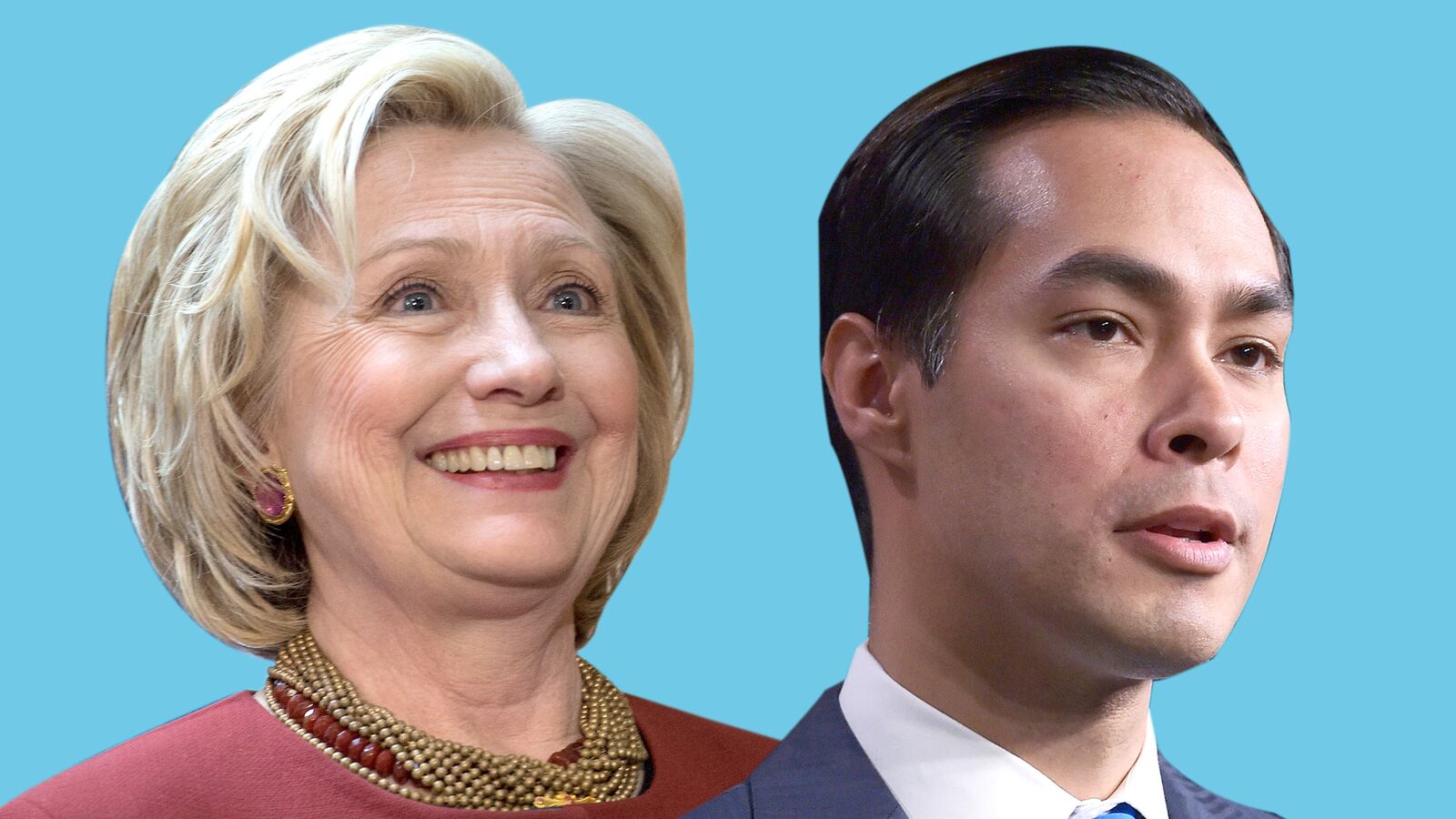As Democrats browse through potential 2016 vice presidential candidates looking for someone young, exciting, and different, does it really come down to Julian Castro—or nothing?
It’s no surprise that the U.S.

As Democrats browse through potential 2016 vice presidential candidates looking for someone young, exciting, and different, does it really come down to Julian Castro—or nothing?
It’s no surprise that the U.S.